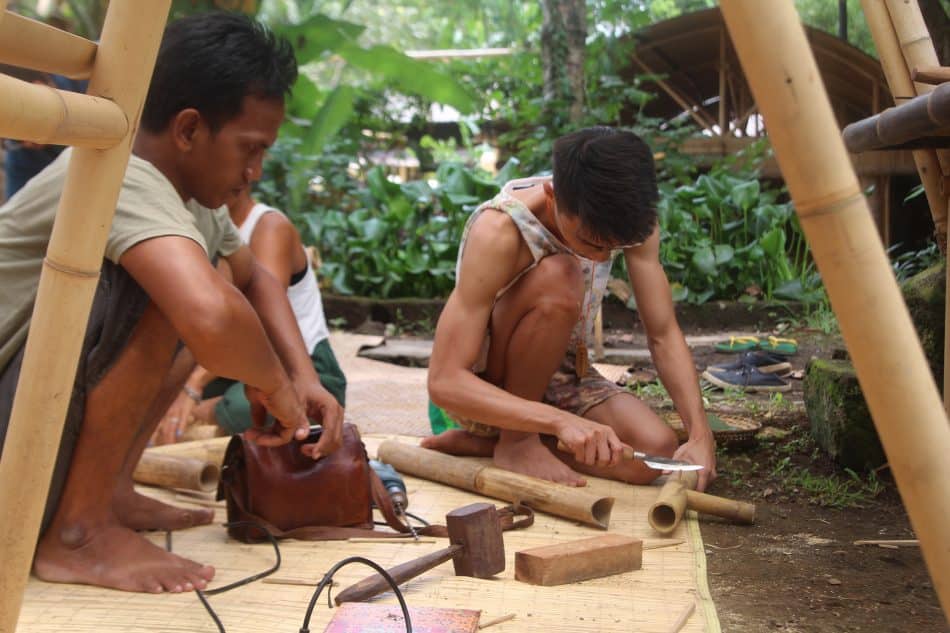The following article was written by and posted on Arch Daily during the November edition of Bamboo U.
The main objective of the BambooU build and design course is to promote bamboo as a green building material, and to provide tools to architects, designers, builders, engineers, and carpenters from all over the world to value this material and increase its use.
The 2017 version of the course invited its participants to be part of a basic carpentry workshop, in which Indonesian artisans—led by I Ketut Mokoh Sumerta—taught them to build the base of a simple structure in Bamboo, without using other materials and by experimenting with the cutting and joining of different pieces.
See the process of this construction below:
Well-dimensioned structural nodes are fundamental for the proper transmission of loads in a structure. In buildings constructed of natural materials such as wood or bamboo, this part requires attention and extra work during the execution. When adding materials such as steel to provide rigidity, this can improve structural performance, but also cause problems with differential contraction, or even oxidation, if proper precautions are not taken.


Bamboo, with its variety of section shapes and dimensions, requires connections that allow it to move, while accommodating its natural shapes. An example of a connection that is being continuously improved by the Indonesian people is the so-called fish mouth, which is constructed using bamboo alone and functions as a basic junction between beams and columns. With or without the help of power tools, it relies on the skill of the builders to create a detail that is strong, efficient and beautiful at the same time. To build it you need only a ruler or tape measure, pencil, a knife, a hacksaw, a chisel, and a drill.




Still, in order to increase the stiffness of the joint, a third piece is inserted diagonally between the two pieces to connect them, with bamboo inserts and pins once again used for attachment.
Although it seems ingenious and complicated at first, the junction can be understood and executed after a few hours and allow the construction of bamboo structures. Only with a lot of practice is perfect execution possible. Knowing how to execute this basic detail, it is possible to imagine some variations, using other angles and changing the dimension of the pieces.


The most important lesson is that working with a natural material requires, above all, respect. And learning from old techniques that have already been tested and rethought is often a good step to success.
Two of our Editors, Eduardo Souza and José Tomás Franco, were invited by BambooU and the bamboo design firm IBUKU to be part of this amazing experience, hosted by The Kul Kul Farm at the Green School in Bali, Indonesia. Check out more information about the next courses here and follow BambooUBali on Instagram.


